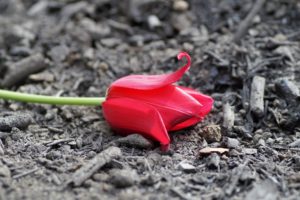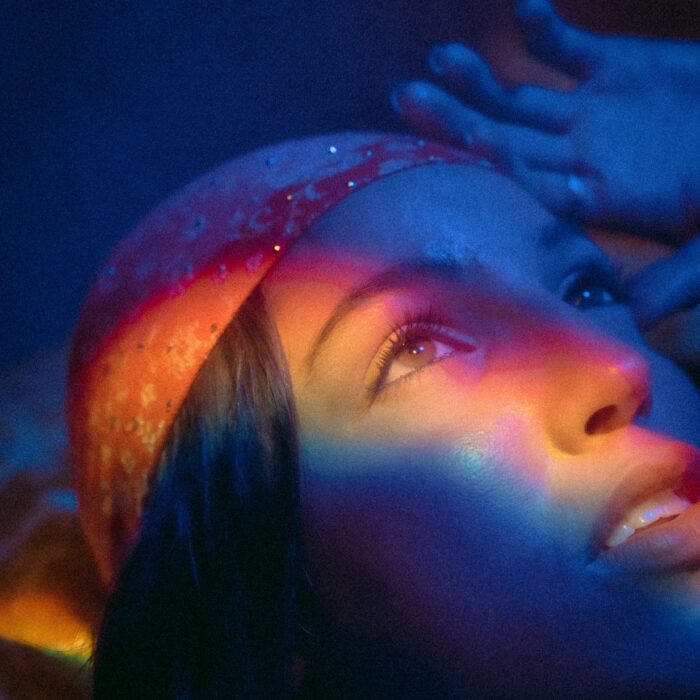You have no items in your cart. Want to get some nice things?
Go shopping The house in the country and the cats and the tranquil weather. The frothing chum of leaves in blue above. It was a dry early summer. The air fresh, from the north. Devon sat outside and read his shaky train notes. Sometimes they made more sense later, sometimes less:
The house in the country and the cats and the tranquil weather. The frothing chum of leaves in blue above. It was a dry early summer. The air fresh, from the north. Devon sat outside and read his shaky train notes. Sometimes they made more sense later, sometimes less:
In whatever drives us to do the opposite of what we intend there must be some ancient wisdom – nothing good ever comes of intention.
A cat slunk by, rubbed its rump against Devon’s leg, and veered off. His second day and he still hadn’t called dad. Which was why he was there, after all. Sister and family off to Europe, and he, sitting, on their house. Escaping, too, cataclysm in the city, scorched earth extending in all directions. A very unimaginative vision, he knew, breakups and the apocalypse. Besides, there was only Central Park to scorch, the rest concrete and asphalt, and how often did he get to Central Park? He only ambled through occasionally, a puzzle piece inserted just right to complete the Mondrian Manhattan.
The apocalypse always lies ahead. Though it’s past coming in the mythical future, often it feels we’ve arrived, even if we’re always approaching.
With a yawning stretch he released the pinch of New York from his neck, from the indignity of sleeping on a friend’s musty, lumpy couch waiting for a place to open up after Lawrence gave him the boot. Weeks passed. Devon had made the couch a little home, the generous friend all quivering voice and knitted brows. The day he confessed to Lawrence played over and over in his mind, how the life drained from Lawrence’s eyes when he’d told him he’d fucked a trick in their bed, Lawrence’s bed, in his home. And for what? Because Lawrence went away on business for three months? How could he have conflated three months’ business travel to desertion? How did he render that a fuckable opportunity?
He read his notebook.
Whatever drives us to do the opposite of intention = another intention
OR there is no intention. Just reaction.
There is no qualification in such a universe. Everything just is. Shit happens.
He bit the nib of his pen and crossed out the last two words. The previous sentence. All of it.
*
Tara talked with a soothing waterfall in the background. Someone had recommended her during the breakup. She talked about presence. He scrubbed egg yolk off a plate and watched birds at the feeder. Ten minutes into her fifty-minute talk he went to his laptop and clicked her off and wandered the house, methodically, deliberately, noticing for the first time the domestic quirks of loved ones otherwise ignored: home is where the heart is stitched into a framed sampler; some knotty, nautical-inspired bric-a-brac on a mantle: a porthole clock, driftwood anchor, shell art seascape. He’d never associated his sister with the high seas, but there it was. Pictures, too. Pictures everywhere. A whole table of frames. One of him standing in front of a spume of flowering lilacs at the old house with his mother, before the accident. He held a purple bunch with a goofy grin, shaggy hair in the split-middle style of his college years. His mother stood close, one leg slightly forward, hand on hip in peach-colored Bermudas, white blouse and tennis visor with pink Nike logo. She wore her hair short, in a bob. She was smiling.
He wandered and returned and stood in front of the picture again.
Mom, cutting flowers, on a May afternoon. Happy. Sporty, even. This was how she looked. Before the fall.
*
He called dad and dad said to come tomorrow, today wasn’t good. Gerald would be over tomorrow. It would be better, everyone together at once. He liked to consolidate, dad. Kill two birds with one stone. Some kind of OCD thing, his consolidation of people and time.
He swung by the florist at Stop & Shop the next day and selected a pre-made bouquet from the cooler – an eight-ninety-nine Saver’s Club Special.
“Oh, aren’t these precious?”
The little old woman behind the counter had pale blue, plastic-rimmed glasses with a golden chain hanging in loops around her neck.
“Would you like them wrapped?”
They were already strangled in cellophane. But sure, he said, sending her into a flurry of activity behind the counter.
“These are lovely, aren’t they?” She whipped pieces of tissue paper off a roller. “They must be for someone special.”
“Yes.”
“Everybody loves flowers, don’t you think? I can’t imagine anyone who doesn’t, can you?”
“Can’t go wrong.”
He felt an urgency, a fluttering in his gut on the verge of release. She studied him under her glasses and flared ribbon with efficient violence. He thrummed his fingers on his wallet. She rang him up and he walked out cradling them like a baby or something to be buried.
*
A last-minute call diverted him to the high-school baseball field. His brother Gerald had forgotten about Jamie’s game and called dad last minute. Dad was able to get out; the health aid was at the house with mom.
Devon stumbled over feet and squeezed between his father and brother in the bleachers.
“How’s your sister’s house?” asked dad.
“Relaxing,” said Devon.
“Cats OK?”
“They’re sweet.”
A pop ball – they stood – out – they sat.
“Jamie been up?” asked Devon.
“Fouled out twice,” said Gerald. “He’s doing all right. Still can’t catch for shit but getting a piece of it.”
Gerald had gained weight and seemed slightly sadder than when Devon had seen him last. He’d always been on the heavier side and morose with an underpinning of nervy restlessness, as if somewhere deep inside a rambunctious teenager still attempted summersaults.
After they lost in the ninth they met Jamie next to the dugout at the fence where a dusty path led to the parking lot and kids met their parents.
“You were great!” said Gerald.
“Nice job,” said dad.
“I sucked,” said Jamie. “Hey Uncle Devon.”
“No, no, no. No, no, no.” Gerald shook his head, eyes closed, hands behind his back. “You got a piece of it. You tried. That’s all that matters. You’re in the game, buddy.”
“Yeah,” murmured Jamie, kicking the dust with his cleats. He regarded Devon. “You at Aunt Laura’s?”
“For a week,” said Devon.
He was a tall, lanky kid with the smoky eyes of a wolf.
“Maybe I can stop by.”
“Sure.”
On the other side of the fence, an old-fashioned, fire-engine red one-speeder emerged with high handlebars and a back basket, pushed by a boy. He was about to walk past when he looked over and stopped.
“Hey Jamie!” he called.
Jamie waved back. “Hey Tyler.”
The boy opened his mouth to say something. A barely perceptible pause in his forward momentum, a tripped-up silence, cut him short. Devon’s throat closed. The boy acknowledged the group with an awkward, broad wave and a prolonged, “Hey,” as their eyes met.
One moment, nonexistent. Then, skin against skin.
They’d met off a dating app the night before. He was within walking distance of his sister’s house. Devon said he had some weed. The boy perked up – he was coming over. Minutes later there was a knock on the screen door. They sat on the back porch and smoked a joint. Inarticulate conscience buzzed in Devon’s head like some trapped insect. What point was it trying to make, failing utterly? They made out in seconds flat. The boy’s lips were cold and sugary. When he removed his shirt, his skin gave off the faint smell of just-turned milk. It was over quickly.
“Did I do everything right?” he asked.
“What do you mean?”
“I dunno. You didn’t seem … excited.”
Devon gave a sigh and made a guttural sound in the back of his throat, killing time with his vocal chords, contemplating what awkward response to compel them to make. “Sorry, forgot my cock ring,” he said.
“What?”
“Kidding. Kidding. Just stress, I guess.”
“That sucks. You’re really sweet.” He arched his neck to peck Devon on the cheek.
“So are you.”
He ruffled Tyler’s thick mop of brown hair. And now he really did wonder what the hell he was doing, why there was a fifteen-year-old boy in his arms. That was the age he’d given, anyway. He seemed maybe older.
“You know, Tyler, this was just for fun.”
“Yeah. You can still be sweet.” He gave what amounted to a pout. “I’m just a few months from legal anyway.”
“Just a few months, huh?”
“It’s like … close enough.”
“Yeah, that’ll hold up in court.”
“Mr. Judge? Like, what’s a few months? That’s just … evil or something. I mean, he’s stressed.”
Devon tussled his hair again. Tyler wrestled him and ended up on top, palms on Devon’s chest, and lowered himself and kissed Devon, his tongue soft and eager in Devon’s mouth like something just hatched, trying to find its way out.
He had to go. His parents would wonder where he was. Maybe he’d been snuffed out by a sex-crazed predator, he said, and laughed out the door. “See you ’round the neighborhood!”
And that was that. The thrill dissipated the moment he left. Now here he was again where he shouldn’t be.
Tyler kicked up dust. “It was fun,” he said.
Jamie nodded like he didn’t much agree but didn’t know what to say about it.
“You really got a piece of it,” said Gerald, referring to Tyler’s double in the 8th, and gave the fence a celebratory rattle.
“Yeah,” said Jamie. “More than a piece there.”
“Next time I’ll make it a home run,” said Tyler.
“Atta boy!” said Gerald.
The conversation faded in and out like the black gnat cloud hanging above their heads. It formed and dispersed and formed again, its metallic shimmer undulating as they waved off Tyler and the red blur of his bike.
When he got in his car, Devon breathed in, out, in, out. The kid seemed cool. Didn’t give anything up. Was there something to give up? They’d made out and jerked off. No sex. He felt ridiculous. On the drive home he gripped the wheel like it might take on a life of its own, fly out of his hands at any moment, send him spinning into the vertiginous green.
At his parents’ he took the flowers from the back seat. The heads drooped from their wrappings. The others were at the door; he followed them in. His father went to the bedroom and voices could be heard. Devon sat in the living room with the flowers in his lap and Gerald and Jamie sat opposite. Momentarily, Devon went to the kitchen and found the shears and began cutting stems to transfer the flowers to a vase. Gerald and Jamie talked in the living room. He’d cut off most of the stems when his father appeared.
“Why don’t you come in?”
Devon put down the scissors mid-cut and followed his father into the bedroom. He sat by the bed. His mother was propped up like a sack of grain, her upper body caved in and sunken along the curve of the adjustable bed. Her arms were stretched out by her side, close to her body, clawed hands palm up as if they no longer belonged to her. Her mouth hung open slightly, poised to say something she no longer could, one last word stuck unspoken as her eyes beseeched him – his father, the nurse, anyone – to help her release it.
He took her hand, gave it a squeeze. A birdlike pulse answered back.
“Hi mom. Hello my beautiful mother.”
He felt another pulse from her hand. She rocked her head slightly forward and back. He leaned in, touched her head, pet her hair – tight, coarse, pulled into a bun – and kissed the delicate place where scalp met forehead. This was where he kissed her now. He didn’t know why. He’d never done it when she was well. But it smelled good there.
“I’m here,” he said.
His father stood in the corner, arms crossed. The health aid had moved into the bathroom.
“I brought flowers. Putting them in the vase you like. I’ll bring them in.”
Her head bobbed slightly.
“Laura’s house is nice. Very relaxing. The cats are sweet. I’m getting a lot of work done. It’ll be hard going back to the city when they get back, but I’ll be coming in a lot. Would you like that? Maybe in a few weeks?”
There was the approximation of a smile, just the slightest change of skin tone in the muscles around her mouth. He kissed her head again.
Back in the living room, he sat across from Jamie while Gerald was in with her. He’d cut the rest of the stems, added the funny packet of white powder, filled the vase with water and put it on the table. A jumble of flowers obscured Jamie’s face, their necks like cracked knuckles. Devon missed whatever Jamie was saying. His head bobbed behind the blooms. Devon sat up and slid the vase over.
“What did you say?”
“Those flowers look a little sad.”
“I’d hoped they’d perk up.”
“Maybe they will.”
They fell silent.
“I’m sorry,” said Devon.
“What for?”
“I’m sorry this is happening. To you. To your grandmother.”
“I’m sorry too.”
“For what?”
“For you, I mean.”
“Don’t feel sorry for me.”
“Why not?”
Why not? Why couldn’t he feel sorry for him? What had he done?
Devon grabbed the vase. He walked out back and dumped the flowers in a patch of dirt behind the garage and watched the earth bubble.
*
At the florist the old lady raised her eyebrows as he walked up. His face hurt. His eyes were wet. When words failed him she nodded, pointed a finger, and directed herself to the cooler.

About Fredric Sinclair
Fredric Sinclair earned his Master of Fine Arts in Fiction from Boston University, where he was awarded the Saul Bellow Fellowship in fiction. His writing has appeared in The Baltimore Review, Jersey Devil Press, and Chelsea Station among others. He is an alum of the Sewanee Writers’ Conference, has been named a Lambda Literary Emerging LGBTQ Writing Fellow, and is a recipient of a Vermont Studio Center residency. Fredric is currently at work on a novel, a book of short stories, and adapting one of his stories into a screenplay.



